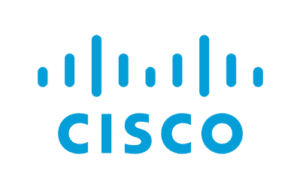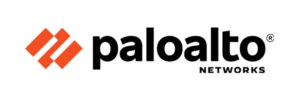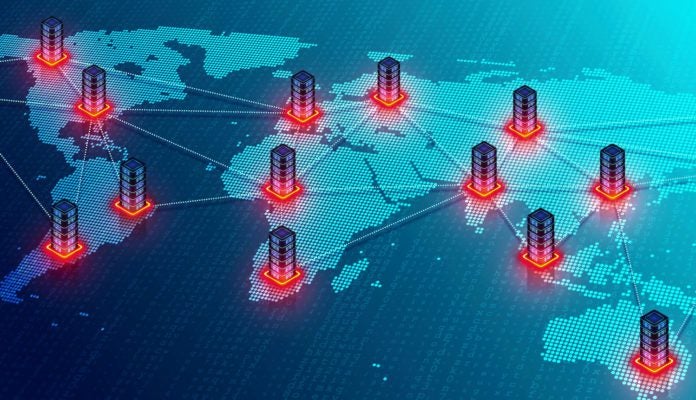Enterprise network security is a multifaceted discipline that covers a wide range of topics, including physical security, access control, firewalls, antivirus, encryption, intrusion detection and prevention, web content filtering, authentication and authorization, cryptography, and policy enforcement.
Businesses often need the services of enterprise network security companies to ensure the security of their networks and data and remain compliant with industry regulations.
As businesses and organizations continue to rely heavily on technology for communication, collaboration, and productivity, it’s important to ensure their networks and infrastructure remain secure. Enterprise network security is essential to protecting businesses’ data, networks, and resources.
Just getting started? Learn more about what an enterprise network is and what types to consider for your company.
Table of Contents
Best Enterprise Network Security Companies
Finding the right company for your organization can be difficult, given the multitude of solutions. To help you make the best decisions, this list will explore some of the top enterprise network security companies and the services they provide.
Cisco Systems: Best overall

Cisco Systems is a global leader in networking and security solutions. It offers a range of hardware and software products for network security. Cisco Network Security is a comprehensive set of hardware, software, and services that work together to protect your organization’s network from threats.
Cisco’s SecureX helps you protect your network from malicious actors by providing visibility into all aspects of your network, including user access, device visibility and control, and data protection.
Aside from SecureX, Cisco offers several network security solutions, including industrial threat defense, ransomware defense, firewalls, identity services engine (ISE), defense orchestrators, next-generation intrusion prevention system (NGIPS), extended detection and response (XDR), secure access service edge (SASE), zero trust, web and email security, web application and database security, and endpoint security.
Overall, Cisco Network Security provides comprehensive, end-to-end security solutions you can customize. It’s designed to provide visibility into your network, so you can quickly detect and respond to threats while also providing the scalability and flexibility to meet your changing security needs.
Key features
- Firewalls: Cisco provides a variety of firewalls, including next-generation firewalls (NGFWs), traditional firewalls, and cloud-based firewalls that protect against external threats, such as malicious software, spam, and hackers.
- Next-generation intrusion prevention systems (NGIPS): Cisco’s NGIPS detects and blocks malicious traffic that attempts to enter a network. An intrusion prevention system (IPS) can also detect and respond to known attacks.
- Network access control (NAC): Cisco’s network access control (NAC) solution helps organizations protect their networks by authenticating and authorizing users and devices before they connect to the network.
- Identity services engine (ISE): ISE is a policy-based NAC system that helps organizations manage user identities, user access policies, network access rights, and network security policies.
- Network segmentation: Cisco provides secure network segmentation solutions that help organizations isolate sensitive data and systems from the rest of their networks to increase visibility into their networks and reduce the risk of unauthorized access.
- Advanced malware protection (AMP): AMP is a security solution that helps organizations detect and protect against advanced malware threats.
Pros
- Comprehensive network security solutions, covering everything from essential firewall protection to advanced intrusion prevention capabilities
- Highly reliable, ensuring networks remain secure even during peak usage periods
- Highly scalable, allowing organizations to quickly adjust their security posture according to their changing requirements
- Able to be integrated with existing IT systems, making them easier to deploy and manage
Cons
- May require additional staff training to ensure their proper use
- Can be expensive, especially for small and midsize businesses (SMBs)
Pricing
Cisco offers a buy-what-you-need, pay-as-you-go model through their Cisco Secure Choice program. Begin by selecting any two Cisco security products, and add on where needed as your business scales. The more you buy, the deeper the discounts you’ll receive—and all products are automatically integrated into a centralized SecureX hub.
Check Point Software Technologies: Best for mobile networks

Check Point is a leading provider of cybersecurity solutions, protecting businesses, critical infrastructure, governments, and consumers worldwide. Check Point’s Quantum Network Security Solutions offer advanced threat prevention, secure connectivity, and compliance with global regulations, using the latest multilayered technologies to protect against malicious attacks and data theft.
Check Point’s security solutions are designed to provide end-to-end protection for your business, including endpoint protection, secure remote access, data protection, mobile security, email and web security, and cloud security.
Its products include NGFW, unified threat management, and secure remote access solutions. The company also provides cloud-based security solutions, mobile security, data loss prevention, encryption, advanced threat protection and identity and access management (IAM) solutions.
Key features
- NGFW: Provides comprehensive network security with advanced features such as stateful inspection, application control, URL filtering, and intrusion prevention.
- Data loss prevention: Automatically scans for sensitive data and prevents leakage of confidential information.
- Advanced threat prevention: Check Point’s technology helps organizations protect against sophisticated cyberattacks, including ransomware and other zero-day threats.
- Endpoint protection: Detects and blocks malicious activities from endpoints such as laptops, desktops, and mobile devices.
- Identity awareness: Provides visibility into who is on your network and what they’re doing.
- SandBlast: Leverages advanced threat prevention to detect and block even the most sophisticated threats.
- NAC: Automatically grants or denies access to the network based on user identity and device compliance.
Pros
- Highly scalable
- Feature-rich
- Zero-day threat prevention
- Provides multiple products to protect users from cyber threats, including firewall, antivirus, intrusion prevention, and data loss prevention
- Internet of Things (IoT) solutions tailored for different environments, including smart offices, smart buildings, industrial, and healthcare
Cons
- Check Point products can be quite costly, especially for smaller businesses.
- Study materials could be improved to help mitigate the steep learning curve.
Pricing
Check Point Software Technologies does not list pricing on its website. However, interested buyers can book a demo, request a free trial of their chosen products, and contact sales for custom quotes. This allows customers to customize their purchases and get the best value for their needs.
Palo Alto Networks: Best for enterprises

Palo Alto Networks is a network security company that provides a platform for enterprises, agencies, and service providers to secure their networks and safely enable applications, users, and content.
Its products are built with an intuitive user interface that makes deploying and managing security across networks easy. Its machine learning (ML)-powered NGFWs protect organizations’ networks from threats, while its cloud-native security solutions help organizations protect their cloud-deployed resources.
With an array of features, such as advanced threat prevention, user and application control, and URL filtering, Palo Alto Networks provides the robust protection needed to secure enterprise networks. Additionally, it offers various services to help customers optimize performance and ensure their network security solutions are up-to-date, including managed services, training, support, and consulting.
Key features
- Data center: Provides visibility and security controls across physical, virtualized, containerized, and cloud environments.
- Zero trust security: Uses identity-based policies and segmentation to protect users, applications, and data in the cloud and on-premises.
- Automation and orchestration: Automates and streamlines security operations to minimize manual tasks and improve security posture across all security areas, including SecOps, NetSecOps, and CloudSecOps, and all security products.
- User behavior analytics: Monitors user behavior to detect and respond to suspicious activity.
- Security analytics: Aggregates and correlates data from multiple sources to identify potential threats.
- Prisma SASE: Prisma SASE unifies security and SD-WAN into a cloud-hosted platform. It combines several single-function products, such as ZTNA 2.0, Cloud SWG, NG-CASB, FWaaS, SD-WAN, and ADEM, into one service, decreasing network and security issues while enhancing organizational flexibility.
- Connected device and IoT: Gain detailed insights into any connected device through ML-powered visibility. You can identify device type, vendor, model, firmware, and more while leveraging cloud-based analysis to compare device usage and refine models to ensure all devices are managed.
Pros
- Protects against zero-day attacks
- Allows organizations to protect their entire network with cloud, network, and endpoint security features
- Centralized policy management
- Advanced reporting and analytics
- Multicloud support
Cons
- Products are expensive.
- Can become complex to manage each customer’s requirements.
Pricing
Palo Alto Networks does not list pricing on its website. Interested buyers can get started by booking a demo or requesting a free trial of whichever products they are interested in, or contact sales for custom quotes.
Fortinet: Best for SMBs

Fortinet is a leading enterprise network security company that provides a wide range of easy to deploy and highly scalable solutions for large organizations as well as those tailored specifically for SMBs.
Fortinet’s network security solutions include FortiGate next-generation firewall, SD-WAN Edge, FortiSASE network access, FortiSwitch LAN edge, FortiManager management, FortiProxy secure web gateway (SWG), and Linksys HomeWRK network security. These products are all designed to provide organizations with the highest level of protection against malicious attacks and data breaches.
Fortinet also offers a wide range of services, including managed security services, threat assessment, and consulting services to help SMBs protect their networks. Fortinet’s solutions are designed to protect against advanced threats, secure mobile and cloud access, and provide secure access to applications and data.
Key features
- Virtual private networks (VPNs): Offers Internet Protocol secure (IPsec) and Secure Sockets Layer (SSL) VPN options.
- FortiManager security management: Provides unified security management for simplified administration and policy enforcement.
- FortiGate NGFW: A unified, comprehensive security platform with advanced threat protection and granular visibility and control.
- FortiProxy SWG: Protects users from malicious web content and applications and enforces acceptable use policies.
- FortiSASE Network Access: A SASE offering that provides advanced security for users, devices, applications, and data.
- FortiAuthenticator: A centralized authentication solution that helps secure user access to your network.
- FortiClient: Endpoint protection platform with advanced threat protection and security fabric integration.
Pros
- Easy deployment
- Scalable security solutions
- Universal ZTNA enforcement
- Intuitive interface
- Integration with other systems
Cons
- Support could be improved.
- Users have reported experiencing high memory usage and conserve mode activation on multiple occasions.
Pricing
Fortinet does not list prices on its website. As with the other network solution companies listed in this article, potential buyers can request a quote or explore free product demos to get to know their options before purchasing.
Sophos: Best for remote teams

Sophos is an IT security company that provides cloud-based and on-premises solutions to protect businesses and home users from advanced cyber threats and data loss. Sophos offers a comprehensive suite of network security products and services to safeguard remote teams and their data.
Sophos’ solutions offer robust endpoint security, advanced threat protection, and cloud-based management to help keep remote teams secure. Sophos Intercept X Endpoint and Sophos ZTNA work together to ensure that all devices used by the enterprise workforce are secure.
This single-agent solution enables you to manage and protect end users from a unified console and provides comprehensive endpoint protection for all of your platforms, including desktops, laptops, servers, tablets, and mobile devices across all major operating systems such as Windows, macOS, Linux, Android, iOS, and Chrome OS.
Key features
- Next-gen protection: Includes deep learning, anti-ransomware, and file-less attack protection.
- Sophos Central: A single cloud-based management console for all Sophos next-gen technologies, including endpoint, server, public cloud, mobile, wireless, WAF, firewall, ZTNA, and email, Sophos Central provides real-time info-sharing and automated incident response.
- Role-based administration: Includes multiple predefined roles for admin, help desk, and reporting.
- Security updates: Centralized backup and firmware updates are available for network firewalls.
- Application programming interfaces (APIs): Secure APIs are able to integrate with third-party remote monitoring and management (RMM), security information and event management (SIEM), professional services automation (PSA), and other client management tools.
- Extended detection and response (XDR): Provides complete visibility of hosts, containers, endpoints, the network, and even cloud provider native services.
- Managed security services: Sophos offers 24/7 managed detection and response threat hunting.
Pros
- Unified dashboard for comprehensive visibility
- Foundational protection, including app control and behavioral detection
- Supports cloud security posture management (CSPM)
- Endpoints running Android, iOS, and Chrome OS operating systems can be monitored and managed for device, network, and application security from a single dashboard in Sophos Central.
Cons
- Users report complex initial setup.
- Users say the solution is on the pricier side.
Pricing
Sophos does not list pricing on its website, as it is a quote-based solution. Customers can request a free trial, read a solution brief, or contact sales for custom quotes. The free trial provides access to Sophos’s full protection suite, including endpoint XDR, email, mobile, and server protection.
Barracuda Networks: Best for unified security

Barracuda Networks is a leading enterprise network security company that provides global comprehensive, unified security solutions to customers. These solutions provide comprehensive protection for businesses of all sizes and industries, including government, retail, education, financial services, and healthcare.
Barracuda Networks is a provider of security and data protection solutions for businesses. Its product portfolio includes email protection, application and cloud security, network security, data protection and ransomware protection. Barracuda Networks also provides data backup and recovery solutions and cloud-enabled storage and archiving solutions.
Key features
- Advanced threat protection: Baracuda uses full system emulation to gain deep insight into malware behavior. It checks files against an ever-updating cryptographic hash database. Unknown files are emulated in a virtual sandbox to detect malicious behavior.
- Advanced IAM: Role-based access control and attribute-based access control policy engine.
- Barracuda CloudGen Access: Supports hybrid environments, ensuring security during cloud migration. It’s also compatible with all apps, from legacy to SAML, as well as mobile and desktop devices, making it suitable for remote work.
- Regulatory compliance: Attain regulatory compliance with global security and access policy across hybrid and multicloud systems for PCI-DSS, NIST-800, and HIPAA.
- Barracuda CloudGen Firewall: Employs a time-based one-time password algorithm for advanced multifactor authentication, safeguarding company assets and SSL-VPN and VPN connections from unauthorized access. CloudGen firewalls also support authentication of users and enforcement of user-aware firewall rules, web security gateway settings, and application control 2.0 using active directory, NTLM, MS CHAP, RADIUS, RSA SecurID, LDAP/LDAPS, TACACS+, as well as authentication with x.509 certificates.
- Cross-platform functionality: Barracuda VPN Clients are available for Microsoft Windows, Mac OS, and various Linux systems.
Pros
- Real-time reporting
- Free firewall report creator tool that creates customized reports using statistics and logs collected directly from the deployed firewalls
- Zero-touch deployment
- Drag-and-drop VPN graphical tunnel interface to create and manage VPN tunnels
- Award-winning, responsive customer support team
Cons
- Some users have found the reporting function complicated.
- There is a steep learning curve.
- According to users’ reports, the solution is costly.
Pricing
Barracuda Networks does not list pricing on its website. They have a robust library of free trials for customers to explore, and you can request a salesperson to reach out to provide further information. Pricing will of course vary depending on the product or plan the customer chooses and the number of users and features needed.
Juniper Networks: Best for scalability

Juniper Networks provides networking and cybersecurity solutions for enterprises, service providers, and the public sector. The company’s portfolio includes network hardware, software, and services like routers, switches, security solutions, SD-WAN solutions, and cloud solutions. Juniper Networks also provides professional services, such as consulting and implementation, training and certification programs, and support and maintenance services.
Key features
- Zero-touch provisioning: Available for both on-premises and cloud-based firewall configurations.
- Orchestration and automation: You can create policies for validated threat prevention, user and application access control, and secure connectivity—and apply them anywhere.
- Adaptive threat profiling: Identifies malicious activities targeting your network, including high-risk users and devices, and activates your security measures automatically.
- Flexible integration: Prevents malicious outbreaks on the network by utilizing an SRX Series firewall, MX Series router, EX Series, or QFX Series switch. This integration is compatible with existing NAC solutions and various third-party firewalls, switches, and wireless technology.
- Broad application: Detects and stops everything from zero-day to commodity malware within the web, email, data center, and application traffic targeted for Windows, Mac, and IoT devices.
- Zero-trust environment: Protect your operations from zero-day exploits and memory-based attacks, including OWASP Top 10, through zero-trust micro-segmentation and real-time application security.
Pros
- Zero-trust network
- Extensive documentation
- Highly scalable solutions
- Good technical support
Cons
- The management interface could be improved.
- The reporting feature could be improved.
Pricing
Juniper Networks does not list pricing information on its website. Instead, potential buyers can book a live demo (or watch a video); request an extended, 60-day free trial; or contact sales—via web form, phone, live chat, or even through a local partner—for custom quotes. This flexibility lets prospective customers understand and express their needs better and get the most out of their investments.
Trellix: Best for ease of use

Trellix, founded from a merger between FireEye and McAfee, is an enterprise network security company that provides an easy-to-use, enterprise-grade security solution for businesses of all sizes. The company’s products are designed to help organizations protect their digital assets, reduce the risks associated with cyber threats, and create secure networks for their customers and employees.
Trellix offers a range of products that provide end-to-end protection for enterprise networks, including endpoint security, SecOps and analytics, data protection, network detection and response, email security, and cloud security. These products are designed to detect and prevent malicious activity and provide comprehensive visibility across an organization’s networks and devices.
Trellix also uses artificial intelligence (AI) and ML to enhance the effectiveness of its products and offer comprehensive threat intelligence to ensure organizations stay one step ahead of emerging threats.
Key features
- Signatureless threat detection: Identify and defend against sophisticated, multistage, zero-day, polymorphic, ransomware, and other advanced attacks.
- Inline attack blocking: Monitor and prevent the spread of lateral threats within your enterprise network to minimize post-breach exposure.
- Comprehensive infrastructure protection: Supports the most common operating systems and more than 160 file types.
- MITRE ATT&CK framework: Correlate identified threats to provide contextual evidence and facilitate containment and remediation strategies.
- Flexible deployment: Choose from several deployment methods, such as inline and out-of-band, on-site, hybrid, public and private cloud, and virtual solutions.
- Adaptive defense: Use ML and AI-based correlation engines to detect both known and previously unknown threats in real time as well as provide the ability to detect threats that occurred in the past.
Pros
- Provides visibility across a broader attack surface
- Low rate of false positives, riskware categorization, and mapping to MITRE ATT&CK framework
- Supports most common operating systems, such as Windows, macOS, and Linux
- Alerts and reporting
Cons
- Some users reported high memory and CPU resource consumption.
- Support could be improved.
Pricing
Trellix does not list pricing for its products on its website. While they don’t offer free trials or demos, they do have an extensive library of solution briefs to explore. Buyers can contact the sales team for further information, custom quotes, and pricing.
The Benefits of Enterprise Networking Companies
The future of networking lies in developing new technologies and applications that will continue to revolutionize how we communicate, access information, and collaborate. Networking companies are already at the forefront of this revolution, developing new and innovative solutions that are solving enterprise networking challenges and driving new opportunities for connectivity.
As the demand for networking increases, networking companies will continue to develop and deliver new and improved solutions to help organizations and individuals stay connected, productive, and secure.
- Network infrastructure solutions include designing, implementing, and maintaining wired and wireless networks, such as local area networks (LANs), wide area networks (WANs), and VPNs, as well as networking hardware tools such as routers, switches, firewalls, and cloud computing solutions.
- Network security solutions help protect networks from malicious attacks and unauthorized access. These solutions include security audits, vulnerability assessments, intrusion detection, firewall configurations, NAC systems, and malware protection.
- Network management solutions provide ongoing monitoring, troubleshooting, and optimization of network operations, such as performance monitoring, network traffic analysis, capacity planning, and proactive problem resolution.
- Voice over Internet Protocol (VoIP) solutions enable voice communication over the internet. This includes hardware and software solutions for IP telephony, unified communications, video conferencing, and collaboration tools.
- Data center solutions provide a secure, reliable, and scalable environment for running mission-critical applications and services. These solutions include server virtualization, storage management, and cloud computing infrastructure.
- Network consulting services provide advice and guidance on designing, implementing, and managing a computer network. These services can help your organization with developing an optimal network architecture, selecting the proper hardware and software, and ensuring the network is secure.
Go deeper with this guide to the best network troubleshooting and diagnostics tools.
Featured Cybersecurity Software
How We Evaluated the Top Enterprise Networking Companies
We evaluated the top enterprise networking companies by researching their products, services, customer reviews, industry awards, and certifications. We looked at how the companies are rated regarding product features, customer service, reputation, flexibility, ease of integration, scalability, affordability, and overall performance.
Additionally, we considered network management best practices, such as establishing network policies, using network monitoring and alerting tools, network optimization, and regularly reviewing network logs. We used this information to create a comprehensive list of the best enterprise networking companies available and determine the best fit for your business.
How to Choose an Enterprise Networking Provider
Before selecting a networking provider, it’s essential to research the services they offer and determine which ones are most suitable for your needs. Make sure the provider offers the type of networking services you need, such as wireless, wired, and VPN access, as well as any additional services you may require.
Compare prices
Networking providers often offer similar services at different prices, so it’s essential to compare costs before selecting a provider. Look at the total cost of ownership (TCO), including installation fees, monthly fees, and additional fees for services such as data storage. Most providers don’t list this information publicly, because it can vary widely by organizations’ needs and sizes, so you’ll want to spend some time reaching out to sales departments. Keeping a spreadsheet of all the different offerings and their respective prices can help you ultimately make a calculated decision.
Check network reliability
Loss of productivity due to network downtime can be immensely expensive for organizations, so it’s critical to select a networking provider that offers reliable network connections. Ask potential providers about their uptime and latency and any service-level agreements they may offer.
Consider scalability
If you anticipate that your business will grow, selecting a provider that can scale with your needs is important. Find options for increasing bandwidth and other services as your business grows.
Read reviews
Before selecting a networking provider, read reviews from other customers to understand their customer service, reliability, and overall satisfaction. Look for reviews in online forums, articles like this one, and from people you know who have used their services.
Ask for a demo or free trial
Some—but not all—network service providers offer free trials as part of their base package. Always ask the potential providers for a demo or a free trial of their services, even if it’s not advertised. This will allow you to test their services and ensure they fit your business well.
How Enterprise Networking Companies Keep Your Business Secure
Enterprise networking companies provide specialized services to help ensure your business’s network security is as robust as possible. These companies typically offer a suite of services, including managed firewalls, threat monitoring and prevention, intrusion detection, and virus protection.
They also provide troubleshooting and support, as well as training and consulting services. By partnering with an enterprise networking company, you can ensure your network is secure and your data is protected.
Each of the organizations in this survey offers high-quality products and services and has a track record of success in the industry. By understanding the different offerings of each of these companies, businesses can make an informed decision about which enterprise networking security solutions are best for their needs.






